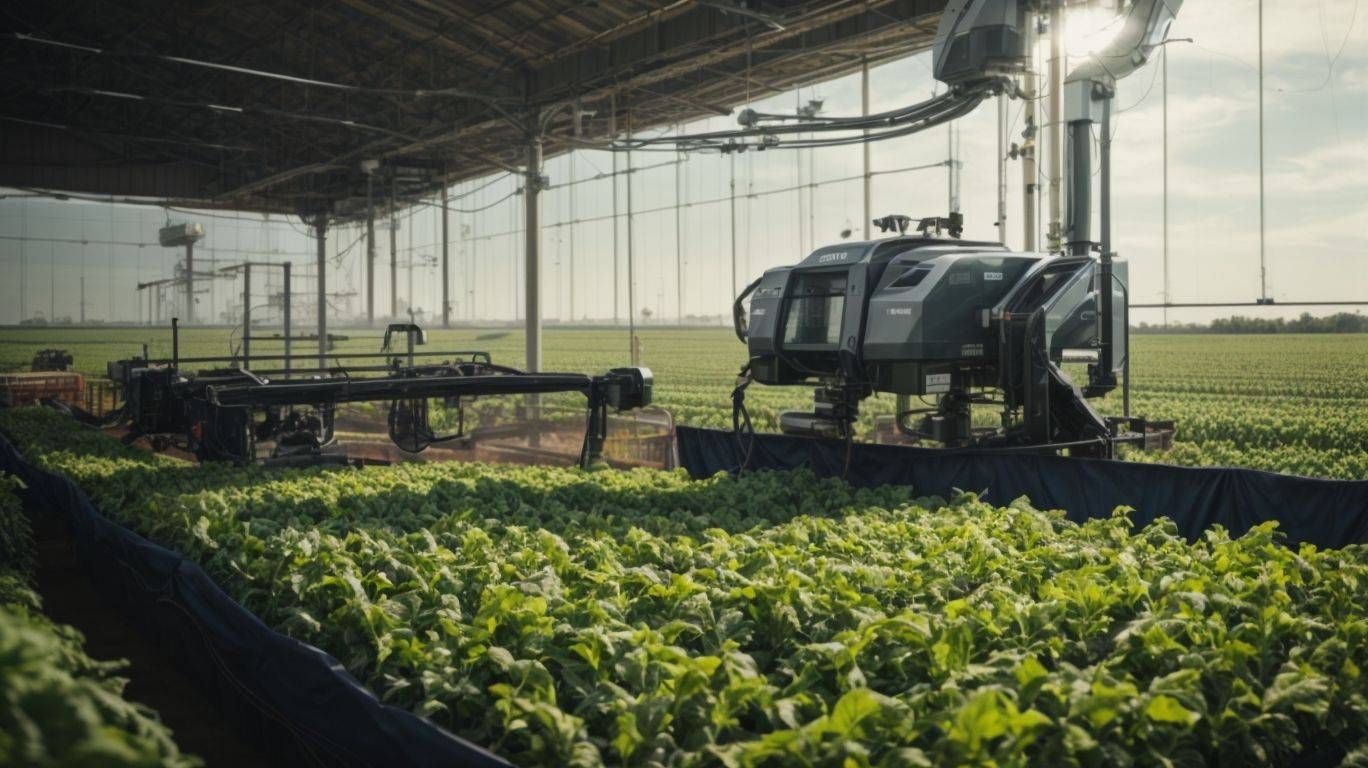With the advancement of technology, artificial intelligence is making its way into various industries, including agriculture.
We will explore the role of AI in revolutionizing the agricultural sector. From increasing efficiency to maximizing yields, AI is making a significant impact on how farmers operate.
Join us as we delve into the world of AI development in agriculture and discover how it is shaping the future of farming.
Key Takeaways:
Overview of AI in Agriculture
AI in agriculture revolutionizes traditional farming practices through the application of advanced technologies, such as artificial intelligence (AI), machine learning (ML), and robotics, to enhance crop production, soil health, and overall productivity.
The integration of precision agriculture and AI algorithms allows farmers to monitor and analyze data from sensors, drones, and satellites. This data-driven approach enables them to make informed decisions in real-time, optimizing irrigation, fertilization, and pest control.
AI is crucial in developing sustainable food systems by reducing waste, improving resource efficiency, and promoting biodiversity. By leveraging innovative solutions like predictive analytics and autonomous vehicles, farmers can mitigate the impact of climate change and combat labor shortages.
The Role of AI in Enhancing Crop Production
AI plays a pivotal role in optimizing crop production by leveraging technology and data-driven insights to enhance crop yield, quality, and sustainability.
One key way AI technologies are transforming agriculture is through automation. By utilizing robotics and Internet of Things (IoT) devices, farmers can achieve greater precision in planting, irrigation, and pest control. These technologies allow for real-time monitoring of crop health and environmental conditions, enabling quick adjustments to ensure optimal growing conditions. AI-powered predictive analytics help farmers make informed decisions about fertilization, pest management, and harvesting, ultimately leading to increased efficiency and reduced waste in crop production.
Challenges Addressed by AI in Modern Agriculture
AI in modern agriculture tackles significant challenges faced by the industry, including addressing the impact of global population growth, climate change effects, and labor shortages on traditional farming methods.
One of the key challenges that AI technology helps address in agriculture is the need for sustainable practices. By leveraging data analytics and machine learning algorithms, AI can optimize resource utilization, reduce waste, and enhance overall productivity while minimizing environmental impact. AI enables farmers to meet evolving market demands by providing real-time insights on consumer preferences and trends.
Market Trends and Insights on AI in Agriculture
The AI market in agriculture is witnessing exponential growth, fueled by technological advancements, extensive research, and valuable insights that drive innovation and shape future trends in the agricultural sector.
One of the key factors contributing to this growth is the increasing adoption of AI-powered solutions in agricultural operations worldwide. According to industry statistics, the global IoT market in agriculture is projected to reach a value of $7.22 billion by 2023, indicating a significant investment in smart farming technologies.
Trend analysis reveals that AI applications in agriculture have the potential to revolutionize the sector by optimizing crop yields, reducing resource wastage, and improving overall efficiency. Farmers are increasingly leveraging AI tools to streamline decision-making processes, enhance crop monitoring, and mitigate risks associated with unpredictable environmental factors.
Frequently Asked Questions
What is AI Development in Agriculture?
AI Development in Agriculture refers to the use of artificial intelligence technology in the agricultural industry to improve and optimize various processes and operations, such as crop monitoring, yield prediction, and soil analysis.
How can AI Development benefit the agricultural industry?
AI Development in Agriculture can benefit the industry in several ways, including increasing efficiency and productivity, reducing labor costs, improving decision-making, and promoting sustainable practices.
What types of AI technologies are used in Agriculture?
There are various types of AI technologies used in Agriculture, such as machine learning, computer vision, natural language processing, and robotics. These technologies are used to analyze data, make predictions, and automate tasks.
How can businesses benefit from working with a leading AI firm like digitalX?
By working with a leading AI firm like digitalX, businesses can receive customized and advanced AI solutions tailored to their specific needs. Moreover, digitalX’s expertise and guidance can ensure a successful implementation and a high return on investment for the business.
Is AI Development in Agriculture suitable for small-scale farms?
Yes, AI Development in Agriculture is suitable for all types of farms, including small-scale farms. The technology can be tailored to the size and needs of the farm, making it accessible and beneficial for all levels of agriculture.
Can AI Development in Agriculture help promote sustainable practices?
Yes, AI Development in Agriculture can help promote sustainable practices by analyzing data and providing insights that can lead to more efficient use of resources and reduction of waste. This can also contribute to the overall sustainability of the agricultural industry.


